#master's dissertation
Explore tagged Tumblr posts
Text
me to academia if i get an A on my thesis:
We can plant a memory garden
Say a solemn prayer, place a poppy in my hair
There's no morning glory, it was war, it wasn't fair
And we will never go back
To that bloodshed, crimson clover
The worst was over
My hand was the one you reached for
All throughout the Great War
Always remember
We're burned for better
I vowed I would always be yours
'Cause we survived the Great War
#academia#master's student#university#writing this thesis will be the end of me#istg i will quit academia if i don't get an A#master's dissertation
4 notes
·
View notes
Text
Redefining Education:
"A Guide to Transformative and Purposeful Learning"
curriculum studio

I.I JUSTIFICATION: "Education is life itself."
– John Dewey (1916)
Education is not a fixed institution—it is a living, evolving force that adapts alongside human progress. Dewey (1916) argued that education must be responsive to the needs of society, functioning as a tool for both personal and social evolution. If education remains static while society advances, it fails to equip learners with the necessary tools for survival in a changing world.
"Education must always be a site of transformation"

Education has never been stagnant. Throughout history, we have seen its transformative nature:
Ancient Civilizations: Knowledge was shared through symbols, paintings, and oral traditions, embedding cultural values into learning.
Industrial Era: Education was mechanized to prepare individuals for specialized labor roles, reinforcing rigid structures in learning.
Colonial Education Systems: Designed to control populations, shaping narratives that erased indigenous knowledge and histories.
Modern Globalized Education: A vehicle for global connectivity, enabling knowledge-sharing across cultures through digital learning and intercultural exchanges.
As Paulo Freire (1996) critiques in Pedagogy of the Oppressed, traditional education functions as a "banking model," where students are seen as passive recipients rather than active participants in learning. This mechanized transfer of knowledge prevents true intellectual growth. In a globalized world, this rigidity is no longer sustainable.
Education must become a site of transformation, where students are encouraged to think critically, engage ethically, and develop values that contribute to their societies.
Education as a Social Process
Education does not exist in isolation. It is fundamentally a social process (Vygotsky, 1978), where learning happens through dialogue, interaction, and cultural exchange. This is why Transformative Education must go beyond content delivery—it must foster:
Cultural Appreciation – Integrating art, music, and history to develop a sense of identity.
Ethical Reasoning – Encouraging students to navigate moral dilemmas and develop personal integrity.
Emotional Intelligence – Developing self-awareness and social skills for better interpersonal relationships.
When values and ethics are woven into education, students develop a strong sense of purpose and responsibility, both to themselves and their communities.
Transformative Education in Action
Projecto Guri, Brazil
This initiative provides free music education to at-risk children and teenagers, emphasizing collective music learning and performance.
Impact:
Social Inclusion – Students engage in a shared creative process, reducing social isolation.
Cultural Diversity – By embracing various musical traditions, students develop cultural appreciation.
Personal Growth – Studies show increased self-esteem, improved social interactions, and clearer future aspirations.
By learning an instrument, students gain discipline, teamwork, and a sense of belonging, proving that education is not just about academic knowledge—it is about identity formation and life skills.
Soka School System, Japan
This system prioritizes value-creative education—a philosophy aimed at developing students’ inner happiness and social responsibility.
Findings:
Traditional Japanese education places less emphasis on self-expression and social relationships. A comparative study across nine countries found that only 35% of Japanese students felt comfortable expressing their ideas openly in school—the lowest among the nations surveyed.
Soka School System Approach:
Emphasizing character development alongside academic learning.
Encouraging students to find personal meaning in education.
Cultivating emotional intelligence, self-confidence, and ethical decision-making.
Graduates from Soka schools often enter society not just as high-achieving individuals but as socially responsible and purpose-driven citizens.
The Future of Education

As Amartya Sen (1999) argues, education must be forward-thinking, preparing individuals to thrive in an evolving world rather than simply meeting outdated employment needs.
Modern education systems must:
Move beyond standardized testing toward competency-based learning.
Encourage project-based education that connects learning with real-world challenges.
Design classrooms that prioritize ethics, self-awareness, and adaptability.
If we continue applying rigid, test-driven 20th-century education to a 21st-century globalized society, we are limiting both individual potential and national development.
"Education is transformative by nature—and so, it must transform itself."
Here we argue that Transformative Education is not merely a pedagogical trend but a critical necessity. It is a response to the limitations of traditional education, which often reduces learning to rote memorization rather than fostering adaptability, creativity, and ethical reasoning. It aims to explore how we can bridge the gap between theory and practice, bringing Transformative Education into classrooms worldwide.
______
📚 Further Reading & Resources
If you're interested in diving deeper into the concepts discussed, here are some recommended books and academic resources:
Pedagogy of the Oppressed – Paulo Freire (1996) 📖
Democracy and Education – John Dewey (1916) 🏛️
Education for Critical Consciousness – Paulo Freire (1974) 🔎
Creating Innovators: The Making of Young People Who Will Change the World – Tony Wagner (2012) 🚀
The Capability Approach and Education – Melanie Walker & Elaine Unterhalter (2007) 🌍
📌 Note
This blog post is an adapted version of a work-in-progress master's dissertation on Transformative Education. The full dissertation will explore in depth: ✔️ Theoretical foundations of transformative education. ✔️ Case studies demonstrating its impact in real-world classrooms. ✔️ Practical frameworks for integrating transformative education into different learning environments. The next article will focus on the objectives and significance of the study, outlining its academic contributions, practical implications, and relevance to contemporary education. Stay tuned for more insights!

#curriculum#trc magazine#learning#curriculum studio#philosophy#education and learning#educational#transformative power#transformativejourney#transformative experience#globalization#master's dissertation#amartya sen#vygotsky#paulo freire#jhon dewey#sociology of education
1 note
·
View note
Text

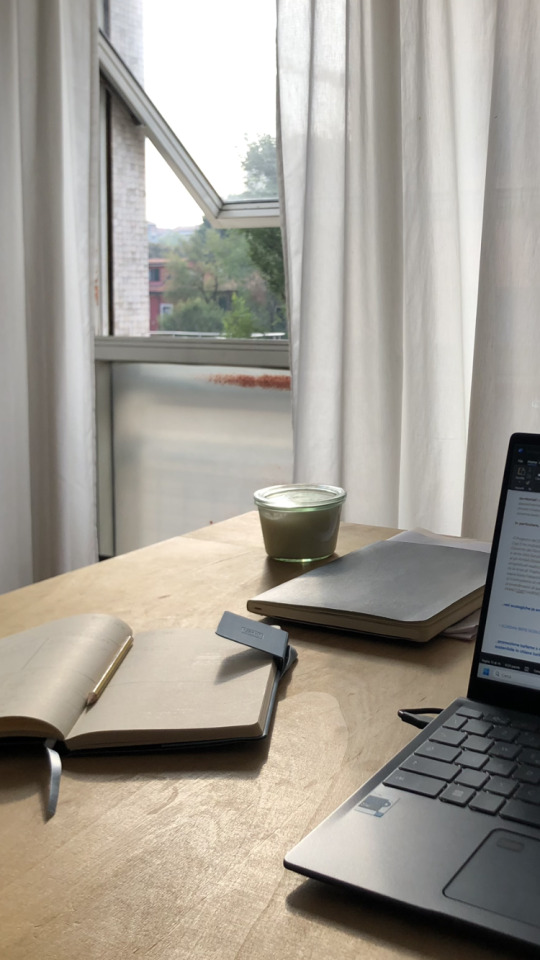
days of october 🍂
aka coffee, daily walks and never-ending thesis work
#aquietplacetostudy#light academia#studyblr#aesthetic#study inspiration#uni student#writing#university#uni life#study blog#thesis#master thesis#dissertation#minimal study space#study space#academia#october#fall season#autumn
1K notes
·
View notes
Text
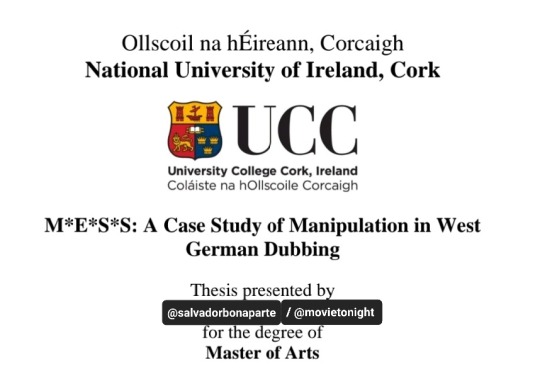
Thesis Finished 🎉
169 notes
·
View notes
Text

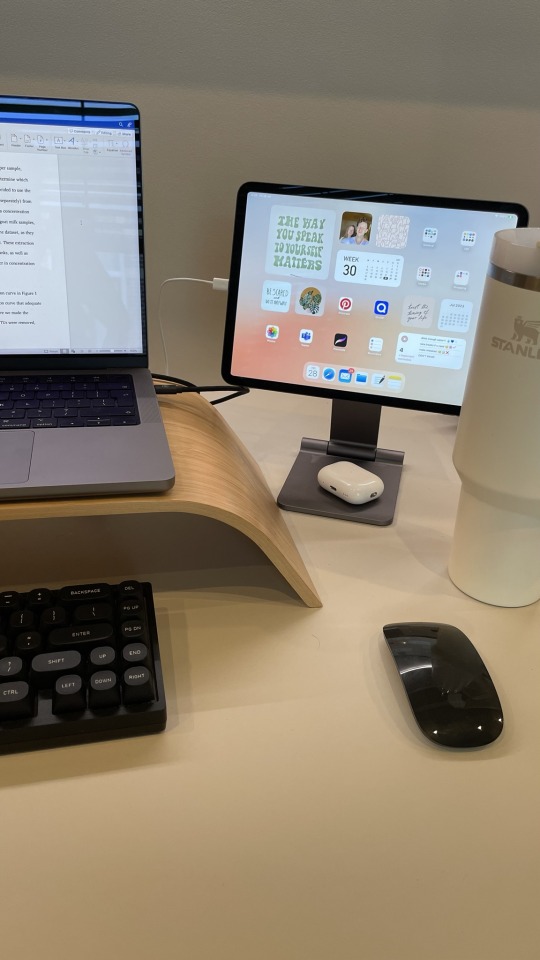

Finishing the first draft of my thesis in between packing for volunteering at the world championships Icelandic horses in Oirschot! Stella helping, like always 😌
#studyblr#studyspo#vetmed#vetblr#thesis writing#dissertation#thesis#master of science#veterinary medicine#veterinary science#medblr#med school#ipad#goodnotes#light academia#light aesthetic#aesthetic#icelandic horses#icelandic horse#horses#cats#kitty#kitten#siberian forest cat#Siberian cat#neva masquerade#Stella#Stelmaria
170 notes
·
View notes
Text
Sowwy for being MIA these days guys, it's really one thing after another for me irl 💕 I SHOULD be a bit freer starting in July though, but until then... erm! ADJSDHASGDSAJ
#tbd.#◜✧ . ❪ ooc. ❫#The non-fascist candidate won our elections THANK GOD so thankfully that's ONE stress off my shoulders 🙏🙏🙏 at least for now#But this week is my last week of classes Ever and I'm graduating my master's this Saturday too so. BUNCH of things happening irl?!#I've been sleeping 2h-4h a day to write up on my dissertation bc I have to present a chunk of it tmrw & submit another part by Friday#And I also talked to an instructor for my driver's license & I'll be starting driving lessons in June+I'll have to finish the dissertation#fully by the end of June. BUT AFTER THAT! I should have 1 day of driver's exam in July & my dissertation defense on 1 other day in July#Afterwards a few more weeks of driving hours & then the last driving/practical driving exam. THEN I /SHOULD/ BE FREE!#For a bit at least ADJSAHDSGADJSAHASDJ I'm not too stressed about the driving stuff tho. I'm mostly in the trenches abt uni rn 😮💨#I'll probs be (static silence) on here this whole week til Saturday. But I WILL find a way to be on here during the weekend#bc Tobias' birthday is this Saturday too (blud just HAS to eclipse me. SMH 🙄) & I really want to write his replies for his bday 🤧
7 notes
·
View notes
Text
Discover Your Learning Style: A Personality Test for Purpose-Driven Education
Curriculum Studio

Introduction: Learning About Learning (and Ourselves!)
I have always been an intensely introspective person. Some might call it selfish, maybe even egocentric, but I like to think of it as curiosity—because what subject could be more fascinating than oneself? Understanding how I think, react, and absorb information has been a lifelong guilty pleasure. One way I indulge in this curiosity? Personality tests! Those little quizzes scattered across the internet, from “Which historical figure are you?” to “What kind of bread matches your vibe?”—I’ve probably done them all.
But what if we applied this same fun approach to learning itself? What if, instead of struggling through education with a one-size-fits-all method, we took the time to understand how we individually process information? This personality test is designed to do just that.
By the end, you’ll know your dominant learning style and receive personalized recommendations to make your learning journey smoother, more enjoyable, and—dare I say—fun!
A Quick Look at Learning Styles
Before diving into the test, let’s look at the major learning styles and their origins. The idea that people learn differently has existed for centuries, but one of the most widely recognized models is the VARK model by Neil Fleming (1987). Over time, additional learning styles have been identified, leading to an expanded classification that includes social, solitary, and creative learners.
The 8 Types of Learners
Visual Learners – Learn best through images, diagrams, and mind maps.
Auditory Learners – Absorb information through listening and discussion.
Reading/Writing Learners – Prefer text-based content like books, articles, and note-taking.
Kinesthetic Learners – Learn by doing; hands-on experience is key.
Social Learners – Excel in group discussions and collaborative environments.
Solitary (Intrapersonal) Learners – Prefer independent, self-paced learning.
Logical (Mathematical) Learners – Thrive on patterns, reasoning, and structured thinking.
Creative/Intuitive Learners – Prefer abstract, open-ended exploration and artistic expression.
How This Test Works
This is a simple self-assessment questionnaire with 24 statements. For each, choose:
YES if the statement strongly describes you.
SOMETIMES if it occasionally applies.
NO if it does not apply to you at all.
Each response contributes to a specific learning style. At the end, your dominant learning style(s) will be revealed, along with customized learning strategies tailored to your strengths.
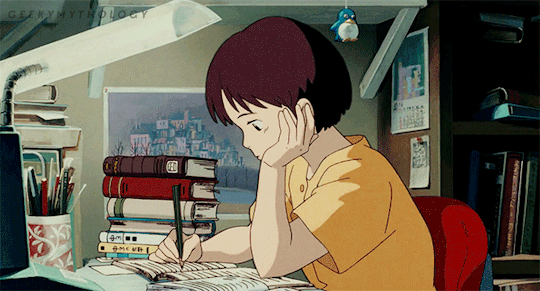
The Learning Style Personality Test
Part 1: How Do You Prefer to Receive Information?
I understand things better when I see diagrams, charts, or mind maps. (Visual)
I remember details best when I hear them explained out loud. (Auditory)
I love reading books, articles, or long explanations. (Reading/Writing)
I grasp concepts faster when I can physically interact with them. (Kinesthetic)
I learn best when I discuss ideas in a group. (Social)
I prefer studying alone, where I can focus without distractions. (Solitary)
I enjoy solving puzzles and seeing patterns in information. (Logical)
I like learning through storytelling, creativity, or open-ended exploration. (Creative)
Part 2: How Do You Process and Retain Information?
When learning, I draw or visualize concepts in my head. (Visual)
I talk to myself or repeat information out loud to remember it. (Auditory)
Taking detailed notes helps me understand topics better. (Reading/Writing)
I learn best by building, touching, or manipulating objects. (Kinesthetic)
I remember things better when I discuss them with others. (Social)
I get the most out of independent research and self-study. (Solitary)
I organize information into categories, steps, or logical sequences. (Logical)
I like to experiment and find unconventional ways to solve problems. (Creative)
Part 3: How Do You Apply Knowledge?
I create visual summaries or use highlighters to organize information. (Visual)
I enjoy listening to podcasts or recorded lectures while learning. (Auditory)
I prefer writing summaries or essays to process what I’ve learned. (Reading/Writing)
I need to physically experience something to truly understand it. (Kinesthetic)
I do best when I can talk through ideas with classmates or colleagues. (Social)
I find myself reflecting and journaling about what I’ve learned. (Solitary)
I enjoy solving logic problems, puzzles, or math-based challenges. (Logical)
I approach learning through art, music, or personal storytelling. (Creative)
Scoring Your Results
YES = 2 points
SOMETIMES = 1 point
NO = 0 points
Add up your scores for each category. The highest score indicates your dominant learning style.
Interpreting Your Results
If you score highest in one category, that’s your primary learning style.
If two or more are close, you likely have a blended learning style.
If your scores are evenly spread, you are an adaptive learner, meaning you can learn in multiple ways.
Understanding Your Learning Style
Visual Learners (Your Strengths & Study Tips)
Use mind maps, diagrams, and color coding.
Watch educational videos instead of just reading.
Summarize information with sketches or visual storytelling.
Auditory Learners (Your Strengths & Study Tips)
Record yourself explaining concepts and listen to them later.
Participate in discussions, debates, and study groups.
Use music or rhymes to memorize key concepts.
Reading/Writing Learners (Your Strengths & Study Tips)
Take detailed notes and organize them into outlines.
Read textbooks, research papers, and write reflections.
Rewrite concepts in your own words to reinforce understanding.
Kinesthetic Learners (Your Strengths & Study Tips)
Engage in hands-on projects or experiments.
Use role-playing or practical applications to solidify concepts.
Take breaks and move around while studying.
Social Learners (Your Strengths & Study Tips)
Join study groups or find a learning partner.
Teach others what you’ve learned to reinforce concepts.
Engage in interactive workshops or group projects.
Solitary Learners (Your Strengths & Study Tips)
Set up a quiet, distraction-free study space.
Self-reflect through journaling and independent research.
Use self-paced courses to learn at your own rhythm.
Logical Learners (Your Strengths & Study Tips)
Organize concepts into charts, lists, and step-by-step sequences.
Solve problems using patterns and structured reasoning.
Break complex topics into cause-and-effect relationships.
Creative Learners (Your Strengths & Study Tips)
Learn through storytelling, metaphors, or visual arts.
Approach subjects with an open-ended, exploratory mindset.
Use brainstorming and creative writing to reinforce ideas.
Final Thoughts: Learning Should Be Fun!
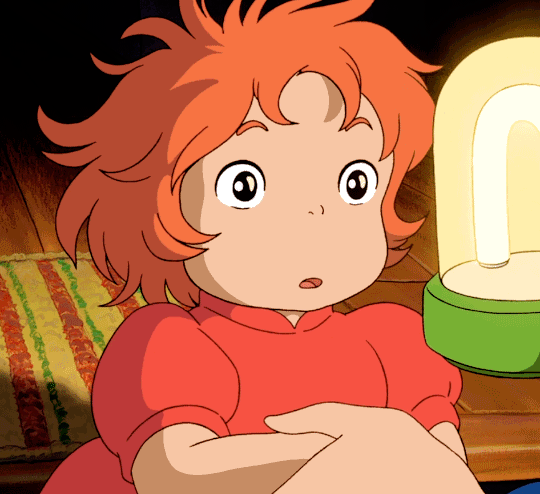
No matter your learning style, the goal is to embrace what works best for you and adapt strategies that make education a purposeful and engaging experience.
My Personal Result & Why It Matters
When I took the test myself, I scored:
6 points for Solitary Learning
4 points each for Creative, Visual, and Reading/Writing Learning
2 points each for Kinesthetic, Logical, and Auditory Learning
And honestly? I agree immensely.
This result shows that learning styles are not strict categories, but rather a spectrum of approaches we shift between depending on the situation. While I thrive in independent learning, I also enjoy visual elements, creative exploration, and writing—and I occasionally benefit from hands-on experiences, structured logic, and auditory learning.
This is why understanding your own learning style is so valuable. Instead of struggling through a method that doesn’t suit you, you can mix and match strategies to make learning more engaging, natural, and effective.
So, what’s your learning style?:)
Comment below and share your thoughts!
____
📌Note
This blog post is an adapted version of a work-in-progress master's dissertation on transformative education. The full dissertation will dive deeper into the theoretical underpinnings, case studies, and frameworks for applying transformative education in real-world classrooms.
Stay tuned for more insights!
#curriculum#musings#understanding#trc magazine#curriculum studio#personality test#personality quiz#fun test#introspection#self awareness#transformative learning#learning#education#self learning#redefining education#student centered#Master's dissertation#master's degree#dissertation#educational science
0 notes
Text
Wow looking at funded PhDs in the humanities is really like. nobody thinks your work is important to society.
#university#i mean i get why stuff like medicine and the environment are prioritised don't get me wrong#i just#a doctoral loan would be yet more debt#im just thinking about stuff for now#haven't even officially started my master's dissertation lol#but i have a careers service appointment tomorrow so ive been thinking about this as well as jobs
6 notes
·
View notes
Note
Noting that I went to a catholic high school in the midwestern US, I would say that between 30-40% of my classmates followed a life path similar to the following (so not even half, but still a significant amount):
1) Age 18-21: start dating someone in uni
2) Age 22/23: get a job shortly after graduation (or have one already organized, probably from a summer internship while in uni)
3) Age 22-24: get engaged to your uni bf/gf within a year of graduating, once you both have jobs basically
4) Age 23-26: wedding within a year or two of getting engaged, also buy a house if you have that kind of money lol
5) 9 months to 1 year after wedding (so 24-26 generally): baby!
I think it's important to note that this culture is able to continue because many college-educated young USAmericans are able to get a decent job very soon after graduating, which speeds up the rest of the process quite a bit. For people who are not able to get a job quickly, or who choose to do further studies, add on a few years. (And for people who don't go to uni, subtract a few!)
yeah i was gonna say, the only thing i envy of that is the getting a job so early and easy lol. i think that's also the main difference or why people aren't married so early here. in my experience (note that i went to a private upper class school so almost everyone went to university and pretty much everyone is employed right now except me lol)
1) 18-23. uni. a bunch of them were dating before uni, others during, some after, you know how it goes. and also a lot of them didn't date (like me).
2) 23-25. finishing uni, doing a master's degree, and or living abroad (usually to work).
3) 25-26. come back to spain and work here, or finished studying and got a job. they start dating seriously.
4) 26-28. if they've been dating for a while, engagement. if not, they continue the grind. if they live abroad especially which is honestly more than half of my circle rn they won't want to get engaged until they come back or decide to stay in the other country (normally their partner is from there).
5) 28-30. this is the future for me so i'm just speculating, but here is marriage + baby for those who can afford it. keep in mind most of us this age are still living with our parents so. that's another thing to have in mind.
more or less that's the idea here. you first want to have a stable job, then a stable house, and then you can start thinking about proposing and weddings and kids. and that doesn't happen soon.
#ask#thanks for the comparision!!!! i think it's a very good indicator of how life works in the USA :) i knew that stuff is done earlier and tha#people tend to have jobs earlier and stuff but seeing it like this made everything much more clear#just as an example in my high school friend group (we are all 26-27)#one friend lived in germany for like 5 years working there after uni. got back to spain last year. started living together with her bf#of like 6-7 years??? (they've been together since forever lol) earlier this year#and now that she's got a stable job and a place to stay has been starting to talk about marriage#another one has been living in the netherlands for the past 7 years first to study there and now to work#also his gf is dutch so. he'll probably stay there#his gf is still studying medicine so i imagine until she finishes they won't even think about marriage#also they are only gonna live together starting this june so that's that lol#then there's this other friend who took longer finishing her bachelor's and master's degree and started working full-time this year#while still having to finish her master's dissertation#she does have a bf (they have been together for 2 years i think?) but she literally doesn't have even time to think about marriage lol#let alone living together with him she lives with her parents#and finally my best friend is doing a master's degree and looking for jobs in the interim. no luck for now but hopefully he'll get one afte#the master which is quite specialized (he's a computer engineering btw. if he can't find a job imagine how fucked the job market is)#and he doesn't even have a gf nor plans to i think? he's focused on getting a job first#and people i know that aren't in this friend group that i talk to from time to time are in pretty similar situations#the ones who lived with their partners are notable outliers#and there's like. 2 people (that i'm aware of) from my high school that married? again they're the exception#so yeah
9 notes
·
View notes
Note
Thesis is killing me in college. I regret taking psychology rn 😭😭😭😭😭😭😭
you can do this nonnie 🗣️🔥 put on your big boi pants and psycho tf out of your thesis. write now cry later 👍
#i'm also getting killed by a dissertation 😖#but weirdly#i really want to pursue master degree lol#i love education 😍#道化師-says❃ུ۪
9 notes
·
View notes
Text
gna take some time to response to asks oops sorry :")) i am nOT coming back !! i just logged back in here for funsies !! my ff writing days are OVER !!
#ujutxt#i feel like i make a comeback on here every summer#there's just something about having way too much free time and logging on here#i'm writing my dissertation for my master's rn#and then it's EMPLOYMENT !!!!#VIV JOBCEL ERA !!! IF U CARE !!!!!#but alas my comeback here isn't really to write or announce i made a new blog or that i'm back on ao3#i think genuinely i've just outgrown fandom culture#not to say that it's an accomplishment or a grown up thing or anything#but i just don't really have the time to pour as much of myself into an online community the way i did in uni or in hs#that being said#i am#cooking up#a novel....#like a legit novel......#she will probably be out in the next idk 3 years if i ever get to finishign it#it has all the angst u would want out of any viv fic ok#girlie's been thru a lot this year
5 notes
·
View notes
Text
What keeps you motivated towards your goals?
Send some inspirations here if you'd like to share tips and tricks to surviving end of semester assignments
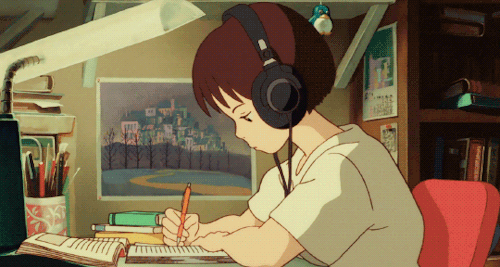
#studyblr#study motivation#student#studying#college#studying mode#study mode#study time#study#student life#asking students#university life#university#ask a student#ask about college#college student#college life#exam season#studing for exams#final exams#finals week#exams#bachelor thesis#master dissertation#phd thesis#doctorate#college assignment#university assignment
23 notes
·
View notes
Text
To my last ever all-nighter.
Never again y'hear me?
#I AM SO EXCITED TO FINISH MY MASTER'S DISSERTATION#afrerwards I am taking a 3 months break AT LEAST
5 notes
·
View notes
Text
idk, it really sucks to see lectures on how "anyone can do art if they practice" from people who gleefully say that they hate math/science and that they refuse to go near it. like I'm not saying that everyone has to be good at math, but like, as someone who does both it's really weird and uncomfortable seeing the difference in how people talk about these things. "do it bad" should apply to science fairs just as much as it does to painting
#like obviously barring poor scientific ethics and stuff#but like. idk man. you dont have to be a master of calculus to enjoy a little number puzzle#and on the flip side you should also acknowledge that there *is* a certain level of inherent ability to art#like. i like to make things. but im AWFUL at coming up with ideas. im simply not a creative person!#i function best when theres a problem to be solved!#its a lot of why i like sewing - its easy for me to be prompted to recreate something ive seen in plush form#the 'creativity' is me figuring out how to represent something in a new medium#rather than coming up with an idea de novo#and its frustrating to see 'everyone is creative it came free with your humanity' when thats. not the case#anyways. dissertation writing is going great ive been staring at the same page for hours now 👍
10 notes
·
View notes
Text
There are plenty of contemporary pagan books out there about the Morrigan, as well as a handful of academic theses, but no books and few academic publications on Badb Catha specifically.
Out of curiosity, is that something folks might be interested in checking out if it did exist?
#i'm hoping to get approval to make her the subject of my master's dissertation but although she's grown some in popularity in recent years#i'm wondering if there's really much demand for anything specifically about badb#hound barks
5 notes
·
View notes